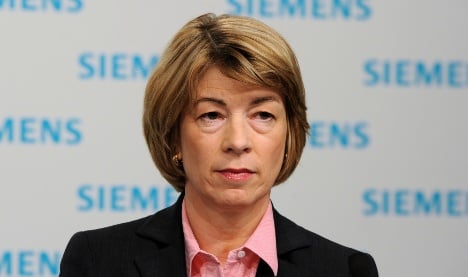Barbara Kux was hailed as a pioneer when she was appointed to the Siemens board in 2008 with responsibility for supply chains and sustainability. The 58-year-old from Switzerland was the first woman to reach such professional heights at Siemens.
But the tech giant has decided not to renew her contract at the next meeting of the supervisory board at the end of the month, the Financial Times Deutschland reported.
Another woman followed Kux to the board in 2010 – Brigitte Ederer – who will likely be the only woman left as of November.
Despite a career which has included significant management positions with international companies such as Nestlé, Ford and Philips, she was unable to establish herself in the male-dominated top echelons of Siemens, the paper wrote.
It said that head of Siemens supervisory board Gerhard Cromme and executive board head Peter Löscher will have to admit that their choice of Kux was a poor one. Although Cromme wanted to keep her, he was apparently unable to overcome opposition from others within the company who want to split her job between other executives.
Taking home €3.9 million a year, Kux was Germany’s best-paid female manager.
The Local/hc



 Please whitelist us to continue reading.
Please whitelist us to continue reading.
Member comments